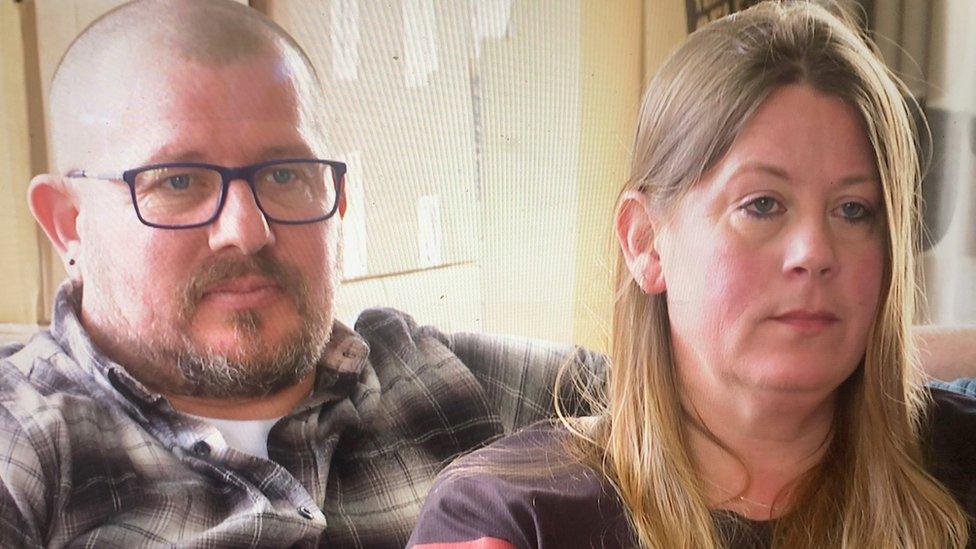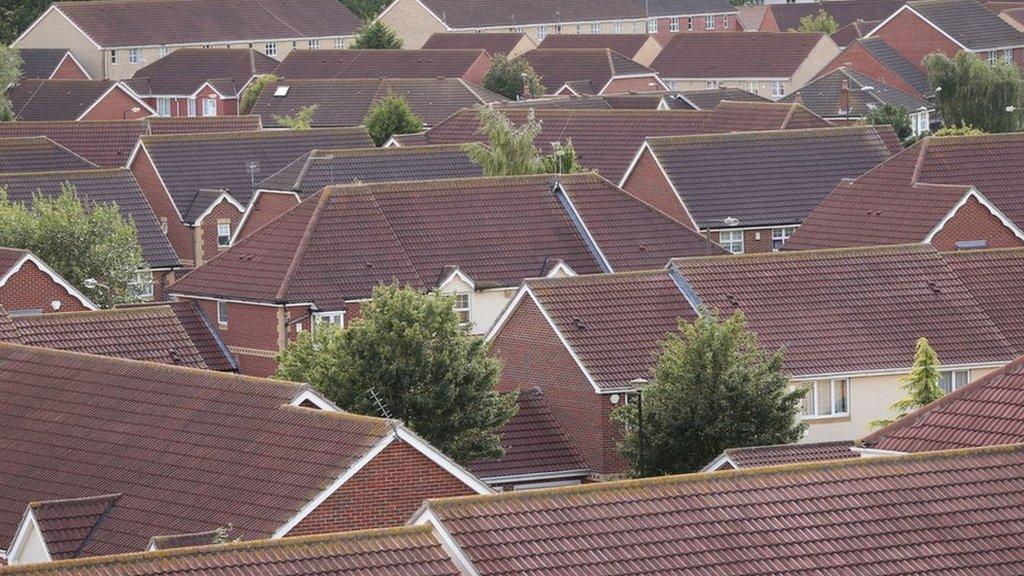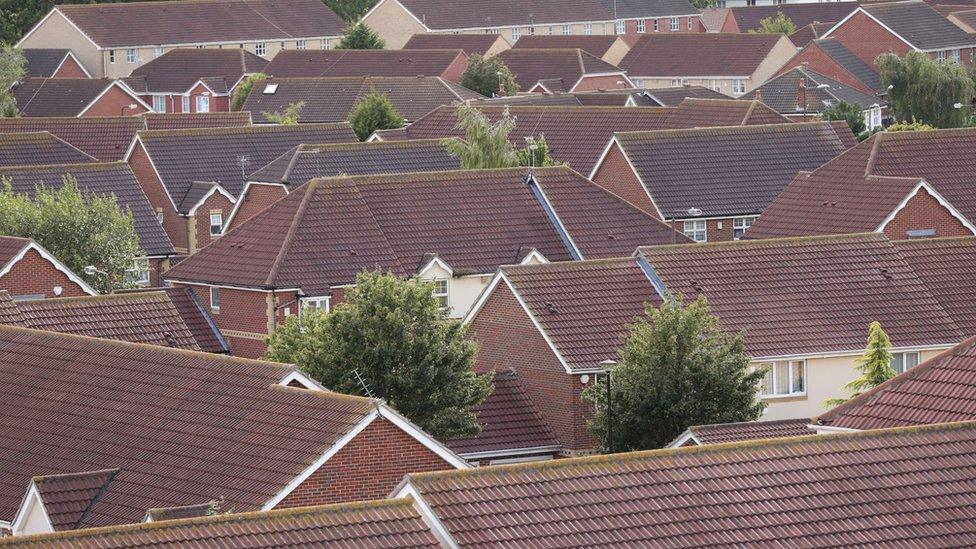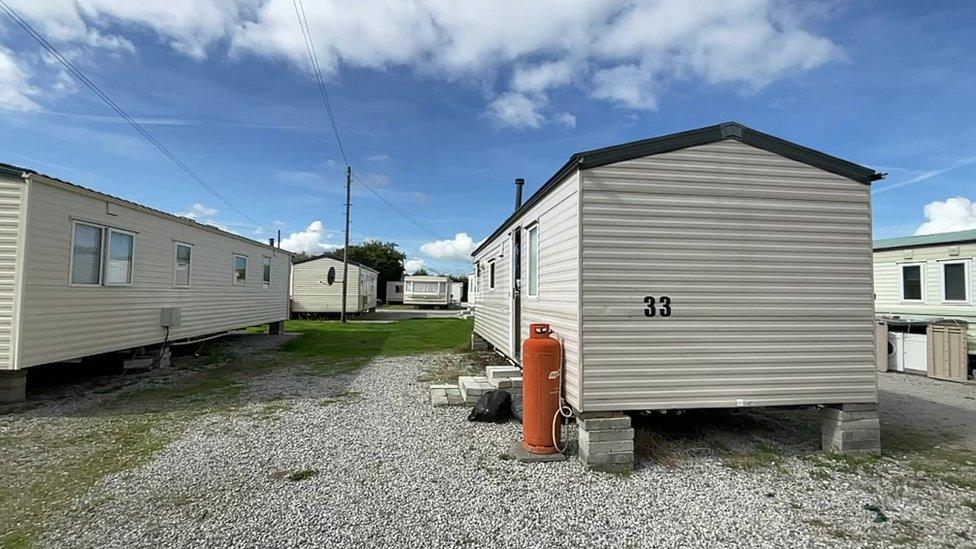No-fault evictions: Cornwall vicarage-rental family face having to move
- Published

Iain and Kelly Price are concerned about having to go into temporary accommodation
A family of six from Cornwall are facing homelessness from a church rectory because of a no-fault eviction.
Iain and Kelly Price have lived in their home for two years, but their landlord, the Diocese of Truro, wants it back for a new vicar.
The Prices face having to leave on 3 April, with Mr Price suffering from cancer and one child who is autistic.
The diocese said vicarages were rented out when not used by clergy, but it was "made clear" they were short-term lets.
'System is broken'
The family said they feared they would end up in temporary accommodation.
They added they were finding the costs of private rentals prohibitive and there was not sufficient social housing stock.
Mr Price said: "We've just had to swallow the bitter pill and join the queue of people that are waiting.
"There's not enough council housing, there's not enough help for people that are being made homeless and the system is broken."
The couple said they were also worried about the impact on their children.
Mrs Price said: "It's just so unstable and so uncertain as to where we are going to be."
Monique Collins, from Cornish homeless charity DISC (Drop In and Share Centre), said she feared the family's prospects for a proper home were not good and "they'll end up in a hotel room somewhere".
There are currently 22,000 households on Cornwall's social housing register, the figure was 9,000 in March 2020.
Emergency accommodation availability
The council currently has 700 households in temporary accommodation, compared with 200-250 before the Covid-19 pandemic.
Cornwall Council said it was committed to providing support for any resident faced with homelessness.
A spokesperson said: "We continue to offer support to all those living in emergency accommodation to help them find long-term homes.
"We are taking action to address Cornwall's housing crisis from increasing the availability of emergency accommodation to increasing the delivery of new council housing for social rent and shared ownership."
The council said it was investing £39m to increase its own stock of temporary accommodation to reduce the reliance on short-term hotel and bed and breakfast accommodation.
The Diocese of Truro said: "Since the tenancy commenced, it has been made clear that the tenancy is short-term and, should the property be required for a clergy person, the tenancy agreement may not be renewed and/or if it continues to run periodically may be ended with the appropriate notice given.
"In this case, the property is required as the diocese will soon be recruiting for a clergy person for that area."

Follow BBC News South West on Twitter, external, Facebook, external and Instagram, external. Send your story ideas to spotlight@bbc.co.uk, external.
Related topics
- Published22 November 2022

- Published6 October 2022

- Published5 June 2022

- Published11 May 2022
